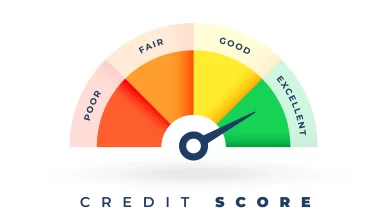
Your dream company sends you a Request for Proposal, and you are ecstatic with an opportunity to pitch for them. However, you are also concerned about the possibility of rejection. Many companies take the help of RFP support services to create their RFPs, and they expect the same kind of professionalism from your side. Some factors may be out of your control, but you must try your best by submitting a strong proposal. Here, you will learn everything you must know to create a proposal that closes at least 80% of the time.
5 Steps to Write a Strong Business Proposal
Show your professionalism and proposal writing skills using these five essential steps:
- Prepare
Start the preparations by collecting the correct information. When you receive a company’s RFP, resist the temptation to complete it quickly and forward it to the client. Collect the right information, understand the project, and know your client’s expectations. Gathering information may take some time, but it will enable you to create a quality proposal with higher chances of acceptance. Some crucial points of information to collect include customer’s problem, client’s budget, deadlines, and preferences of the decision-maker.
You will find most of this information in the RFP itself. Go through the document carefully and understand the intricacies. If not, arrange a meeting with the prospects and write a suitable proposal.
- Write the Business Proposal
Start writing the business proposal once you understand the project details and the client’s expectations. As far as a proposal outline is concerned, there is no one-size-fits-all. However, most of them contain certain key elements. These include the title page, table of contents, executive summary, introductory statement, project overview, detailed scope of work, value, social proof, clear caveats, investment, success metrics, and appendix.
Use standard templates or proposal software programs to quickly and easily create proposals. However, you still need to customize the proposal according to your client’s needs. Portray your proposal as serious, professional, and consistent, and brand it with your logo and header.
- Mind Your Language
Consider using persuasive language by appealing to the client’s emotions, making time-based claims, and using data-based statements to convince prospects. These are a few tips for communicating value and making your proposal persuasive:
- Understand your client’s feelings and pain points and tap into them to improve your chances of getting accepted.
- Position your service as the answer to their problems, whether they are struggling to increase sales or frustrated with their current service provider.
Make time-based claims in your proposals and use statistics to encourage them to take action. Including percentages in your proposal is impactful and make your client interested. Finally, make your proposal time-sensitive to create a sense of urgency. Make the offer for a short time only and claim that businesses that do not avail of your services lose customers rapidly.
- Set Persuasive Pricing
Persuasive pricing is something that you frame, present, and package strategically. Avoid sending hasty cost estimates. Instead, key elements include selling the outcomes, providing one total price rather than a detailed price breakup, and offering varying price options. Finally, set a clear call to action, asking your client to contact you now.
- Review Your Proposal
Your proposal will make the first impression that counts a lot. It reflects your professionalism and seriousness towards business. Therefore, it is crucial to review your submission before sending and edit it if required. Read the proposal to ensure it reads well. Next, check all numbers you have included in the proposal and ensure accuracy. In case of a solicited proposal, double-check to ensure that you have included everything the client asked for.
Proofread it to ensure correct grammar, punctuation, and formatting, and use consistent font type and size throughout the document. Use plain language without any complex words. Be concise, avoid jargon, and avoid using passive voice. Remove long sentences and maintain a conversational and friendly tone. Break the proposal into suitable lists, headings, and subheadings, and include images, tables, and charts to clarify your points.
These valuable tips improve your chances of creating a proposal that closes at least 80% of the time. Expert RFP support providers help companies create effective RFPs, and you may use these tips to create a compelling proposal to attract business.





